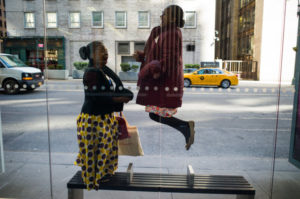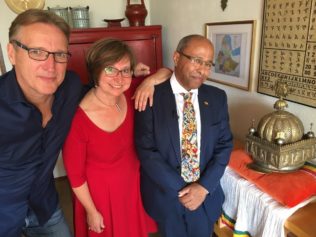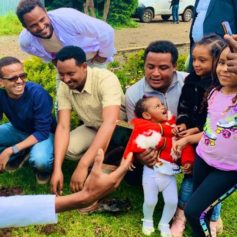Two African teenage girls met last week in New York for the first time and left as best friends with the shared goal of changing the world.
That’s a big mission for a pair of young ladies still in high school, but Memory Banda, 18, from Malawi and Achie, 16, from Ethiopia hardly rank as ordinary.
They spoke on panels at the United Nations 59th Commission Status of Women as part of the Let Girls Lead nonprofit group at the Public Health Institute. And what they had to say was inspiring because they see the world through lens of hope and not tunnels of despair.
In an interview with NPR, they came off as intelligent and ambitious, engaging and serious, fun and daring.
Indeed, a dynamic duo.
“We are about the same age. We’re both petite and we share the same goals to help women,” said Achie, whose last name was not provided because of her age.
Their audacity might be their strongest suit. In her country, girls Memory’s age are customarily forced into womanhood through a tradition that she deems archaic and wrong.
“In my community in the southern part of Malawi,” she said, “the tradition is that once a girl reaches puberty, you go to an initiation camp where we are taught how to be a woman — how to satisfy a man. As part of that you go through a sexual initiation with a man.
“I did not. This was a hard decision. My family and friends were calling me a stubborn little girl because it felt to them like I was embarrassing the family. But for me it was a life decision. I knew that some girls come back pregnant, they get married, they cannot go to school, and if the men run away from their responsibility the girls are left on their own with the children. That was not for me.
“But when my younger sister reached puberty, she went to the camp. She ended up getting pregnant and had to marry the person who impregnated her. She was 11. This is what I saw and what I wanted to change.”
Achie said she has similar concerns about Ethiopia. “I live in a nice neighborhood, and go to a good school, but this is not the life that many young girls in Ethiopia have. Early marriage is also a problem in my country. There are traditional views about women, and they are not expected to go to school. There is also female genital mutilation. In my family there is nothing like that, but I would volunteer in organizations [to tutor] and I would talk to girls and hear their stories. Listening, you just have a feeling of how heavy a burden they are carrying and you cannot be quiet about it. When they share with you what they have experienced, you feel part of it and you want to act on it.”
It’s amazing enough that these young girls who both love to write think so selflessly on scales many adults do not. And it’s mind-blowing that they have already tried to make change.
Memory, who said she dreams of becoming a lawyer or a journalist, said: “I had the idea to put up posters in my neighborhood offering free lessons to the adolescent mothers. And 20 girls joined the class. That led to my working with Let Girls Lead to help create networks for girls and advocating to help stop child marriage. . . So if you ask me what is it like to be a teenager here, it was a struggle. You get anxious as adolescence approaches because you know what you’re going to go through.”
Asked what she got out of volunteering, Achie, a future engineer, said: “I used to be a really shy girl and even if an opportunity was in front of me I would underestimate myself and not do it. That is how I was until I was 14. At that time, I was working as a summer volunteer tutoring children from ages 5 to 16, and even though I was among the youngest of the volunteers, I was asked to lead one of the programs as a school coordinator. I was afraid, but I said yes, and it was my best decision. I opened up. I became less shy and more outspoken.”
What she and her new friend speak about—in two languages, by the way, English and Chiradzulu for Memory, English and Amharic for Achie—is the difference they plan to make in their corner of the world. But these two girls clearly won’t just stop there. They have a whole planet waiting for their inspiring example.



